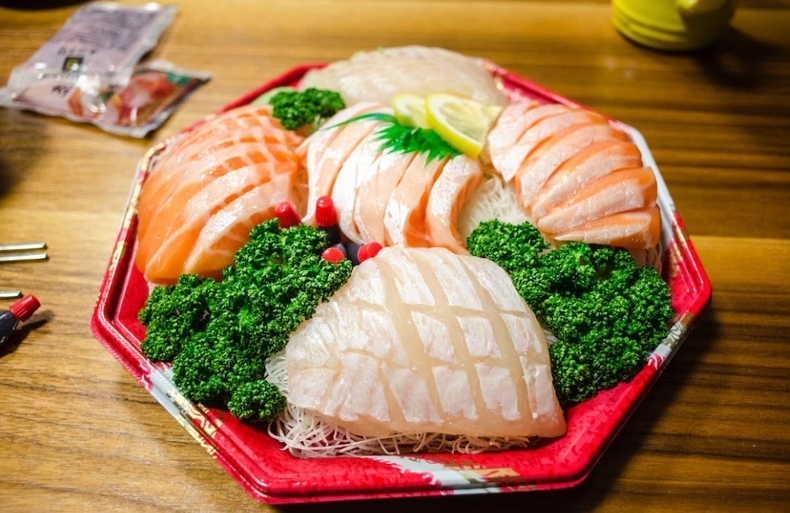
A recent analysis of the occurrence of norovirus-related food poisoning over the past five years has revealed a total of 245 cases. Notably, during the winter months from December to February, there were 102 cases, accounting for approximately 42% of the total incidents.
To prevent the increased occurrence of norovirus food poisoning during the winter season, the Ministry of Food and Drug Safety is urging adherence to preventive measures, such as personal hygiene management.
Norovirus is a gastrointestinal virus that causes food poisoning when ingested through contaminated water or food. It can survive even at temperatures below -20 degrees Celsius.
Uncooked seafood emerged as the primary culprit in norovirus food poisoning cases, representing the highest percentage. Vegetables and groundwater followed closely behind.
Given that norovirus food poisoning can be contracted through consuming contaminated food or water (including groundwater) or through person-to-person contact, strict adherence to personal hygiene management, cleaning, and disinfection is crucial for prevention.
Because norovirus particles are small and have strong adhesion properties, thorough handwashing using soap or detergent for at least 30 seconds, ensuring cleanliness up to the fingertips and back of the hands, is recommended.
Moreover, seafood should be thoroughly cooked at a core temperature of at least 85°C for over one minute, and potentially norovirus-contaminated groundwater should be boiled before consumption.
When handling utensils like knives and cutting boards, it is essential to separate them based on the type of ingredients, such as meat, fish, or vegetables. Cooking utensils should undergo heat sterilization or be disinfected with sterilizing agents after use.
Individuals experiencing symptoms like vomiting or diarrhea should refrain from participating in cooking activities. Even after recovering from symptoms, exclusion from cooking for 2-3 days is advisable.
In cases where norovirus infection is suspected, seeking medical attention is recommended. Since norovirus food poisoning is often transmitted through vomit, saliva, etc., surfaces such as toilets, doorknobs, etc., should be disinfected with chlorine-based disinfectants.
Particularly for infants and young children with lower immunity, strict hygiene management in childcare settings is crucial to prevent the occurrence of norovirus food poisoning.
(한국어 번역)
한국다문화뉴스 = 심민정 기자 | 최근 5년 동안 노로바이러스 식중독 발생 현황을 분석한 결과 모두 245건이 발생했다. 특히, 겨울철인 12월부터 이듬해 2월까지 발생한 식중독 건수는 102건으로 전체의 약 42%를 차지하는 것으로 나타났다.
식품의약품안전처는 겨울철에 발생이 증가하는 노로바이러스 식중독 예방과 확산을 방지하기 위해 개인 위생관리 등 예방수칙 준수를 당부했다.
노로바이러스는 오염된 물이나 음식물 등을 섭취할 경우 식중독을 일으키는 장관계 바이러스로 영하 20도에서도 생존 가능하다.
노로바이러스 식중독 발생의 주요 원인 식품은 익히지 않은 어패류가 가장 높은 비율을 차지했으며 채소류와 지하수가 뒤를 이었다.
노로바이러스 식중독은 오염된 음식과 물(지하수)을 섭취했거나 환자의 구토물, 오염된 손 등 사람 간 접촉으로 감염될 수 있으므로 예방을 위해서는 개인위생 관리와 세척·소독 등을 철저히 해야 한다.
노로바이러스는 입자가 작고 표면 부착력이 강하므로 손을 씻을 때는 비누 등 세정제를 이용해 흐르는 물에 30초 이상 손가락, 손등까지 깨끗하게 씻어야 한다.
또한, 어패류는 중심 온도 85℃에서 1분 이상 완전히 익혀야 하며 노로바이러스 오염 가능성이 있는 지하수는 반드시 끓여 마셔야 한다.
칼·도마는 육류, 생선, 채소 등 식재료에 따라 구분해 사용하고 조리 기구는 열탕 소독하거나 기구 등의 살균소독제로 소독 후 세척해야 한다.
구토·설사 등 의심 증상이 있는 사람은 조리에 참여하지 않도록 하고, 증상이 회복된 후에도 2~3일 동안은 조리에서 배제하는 것이 바람직하다.
아울러 노로바이러스 감염이 의심될 경우 의료기관을 방문해 진료를 받도록 하고 노로바이러스 식중독 환자의 구토물, 침 등에 의해 감염되는 경우가 많으므로 화장실, 문손잡이 등은 염소 소독제로 소독해야 한다.
특히, 영유아의 경우 면역력이 낮아 쉽게 감염될 수 있으므로 어린이집에서는 노로바이러스 식중독이 발생하지 않도록 철저한 위생관리를 하는 것이 중요하다.





















